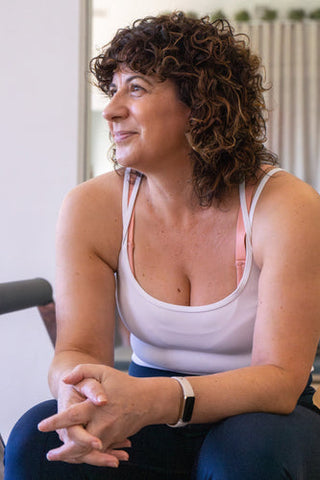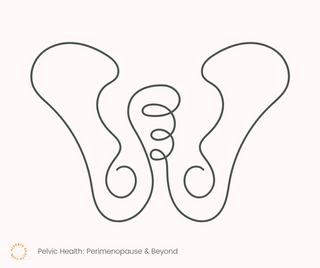A ‘rare’ disease that’s more common than you think, Polycystic Ovarian Syndrome (also known as Polycystic Ovary Syndrome, or PCOS for short) affects 1 in 10 women… and I am one of them. I was diagnosed when I was 15 years old, and unfortunately, a diagnosis did not do much for me. I was not told anything about my disease other than its name, and was given a prescription for the birth control pill to supposedly help regulate my symptoms. This is an all-too-common experience for women given a PCOS diagnosis, many of whom (myself included) eventually turn to online forums for guidance and information from each other. As female reproductive diseases like PCOS and endometriosis gain more spotlight, I have seen the community grow even larger, and our diseases taken more seriously. In the almost 8 years since my diagnosis, this community of amazing women has given me the confidence to no longer hide my symptoms as we are so often taught. Now I want to pay it forward and extend a hand to anyone else like me who is looking for people to help affirm their diagnosis and guide them on their journey through life with PCOS. This is my story.
You might be wondering, what is PCOS, and what exactly do people with it experience?
So far, I have referred to Polycystic Ovarian Syndrome as a disease. However, depending where you do your research, it is also called a ‘disorder,’ ‘health issue,’ ‘condition’… the list goes on. The truth is not much is known about it. For me personally, I call it my chronic illness because the symptoms do make me ill, and it is something I will live with the rest of my life. What is currently known is that PCOS is a condition wherein an imbalance of reproductive hormones causes the ovaries to develop several cysts and/or follicles. Generally, people with PCOS have elevated ‘male’ hormones called androgens. Now, all women have some levels of these, such as testosterone, which plays a key part in our menstrual cycle. However, an overproduction of androgens can lead to certain ‘male’ characteristics presenting themselves in women, and are thus also symptoms of PCOS. This includes:
- Excess hair growth on the face, chin, or parts of the body where men usually have hair. This is called "hirsutism" and affects up to 70% of women with PCOS.
- Moderate to severe acne on the face, chest and back.
- Hair loss or thinning hair; male-pattern baldness.
- Irregular periods. This can include missed or fewer periods, no periods, extremely heavy periods or a more frequent menstrual cycle.
- Struggles with fertility.
People with PCOS may also experience the following symptoms, though these are not necessarily related to androgen production:
- Weight gain or difficulty losing weight.
- Darkening of skin, particularly along neck creases, in the groin, and underneath breasts.
- Skin tags, (small excess flaps of skin in the armpits or neck area.)
- Insulin resistance (Diabetes).
Perhaps what makes PCOS so elusive is that it does not present any one way. One person can have 3-4 of the above symptoms, while another may have completely different symptoms. For me personally, I have hirsutism, irregular periods, skin darkening and of course, polycystic ovaries.
What causes PCOS and is there a cure?
The cause of PCOS is unknown. Currently, research does show a genetic link; it's common for sisters or a mother and daughter to have PCOS. Additionally, while insulin resistance is a symptom and those with PCOS are at a higher risk of developing diabetes, it is also thought that when Insulin levels build up in the body, it may cause the higher androgen levels. Therefore, insulin resistance could potentially be a cause rather than a symptom.
There is also no cure for PCOS, and treatment varies. Hormonal birth control is often the most prescribed treatment option as it can help regulate the hormone imbalance. For those with insulin resistance, diabetes medication such as Metformin can also help, and many doctors may also recommend a change in diet and exercise.
My story

I had always had quite irregular periods as a teenager, but nothing I considered out of the ordinary. Sometimes they lasted up to 9 days instead of 7, or I would skip a month every now and again. In adolescence, irregular periods can be a normal result of puberty. For this reason, I have encountered many doctors who will not diagnose PCOS before the age of 18.
What eventually led to my diagnosis was cycle tracking, and I cannot recommend it enough for everyone who menstruates. Yes, keeping track of your period is convenient so you don’t bleed through your favourite pair of undies, but it is also a window into your health – and if anything is wrong. I was using the app ‘Clue’ at the time and noticed I had surpassed 9 days of menstruation. When I got to day 19 of bleeding, I knew something was incredibly wrong. I told my mum and we booked an appointment with my GP: by the time I got into the doctor’s office, I was on day 27 and severely anaemic because of it. I had a blood test and ultrasound among a few other tests, but the ultrasound basically confirmed it when my ovaries appeared polycystic. Upon further discussion with my doctor, I realised that my thick and luscious body hair was not in fact a result of my Eastern-European heritage, but hirsutism. Another aspect I feel important to mention is my family’s reproductive health history: my grandmother died of fallopian tube cancer, and my mum has endometriosis. PCOS is linked to an increased risk of uterine cancer, and endometriosis can often occur alongside PCOS as well. All of these were factors in my diagnosis.
From there, my doctor prescribed me medication to help stop or at least slow the bleeding, as well as the birth control pill. Then she sent me on my way. I ended up having that one period for a total of 60 days.
A note on infertility
My doctor did not tell me much, but what she did tell me at the tender age of 15 is that I would not be able to have children. This was a rather strange thing to have to come to terms with that young. What I have learnt since is that this is a total misconception among the medical field that is sadly told to many, many people when they are diagnosed. In joining the online PCOS community, and learning from Gynaecologists online such as Mama Doctor Jones, I have come to know that you absolutely can get pregnant with PCOS. It may be more difficult for some, and many women often discover they have PCOS when experiencing fertility issues for the first time, but it is by no means a blanket rule. If a doctor tells or told you this, get a second opinion!
After diagnosis
I wish I could say that knowing my disease made everything easier… but it did not. The thing about invisible illnesses is that they are just that; invisible. I was often met with Doctors who refused to believe me or my initial diagnosis because I do not outwardly present with symptoms like weight gain, and I have had much of my hair laser removed. I’ve had doctors insist I cannot have PCOS and force me into testing for hypothyroidism instead. As recently as last year, I had a gynaecologist who insisted I could not have been diagnosed so young because my ovaries would have been polycystic due to puberty. Surprise, surprise, after being put through the ringer of re-testing, it was still PCOS. I am sure I am not alone in this experience; the online community for PCOS is so large for a reason.
At the risk of being entirely too negative, I will mention that having the Mirena IUD drastically relieved many of my symptoms. I no longer menstruate, which for me personally is great as I do not have to experience my very heavy, very painful periods anymore. My biggest positive is the community, who have taught me so much. Part of having PCOS is growing more ovarian cysts than the average person, which can sometimes grow so large that they become incredibly painful and require medical intervention. Luckily for me, my cysts usually go away on their own, but that does not mean I get to skip the growing pains. I used to shy away from asking for accommodations for this, but in meeting other people like me I have gradually learnt that I should not and do not have to hide my illness.
My hope for the future is that more funding is put into female reproductive health research. Too little is known about PCOS and other conditions like it, despite affecting 10% of the female population. Too many women are given a diagnosis and a birth control pill, and nothing more. Much of the information I have found is from my own research and the online community. Realistically, we should not have to spend years learning from each other to discover that having children is possible, or that we are at higher risk for diabetes, among other things. But for now, I hope that someone reading this can find comfort in a story similar to their own.

Written by Sascha Czuchwicki
Me by Aleenta Instructor & writer
Works Cited
Jones, Dr. Danielle. 5 Things Your Gynecologist Wants You To Know: PCOS Misconceptions. 2021. 10 April 2022. <https://youtu.be/vQD2B1VZ14c>.
The Johns Hopkins University, The Johns Hopkins Hospital, and Johns Hopkins Health System. Polycystic Ovary Syndrome (PCOS). n.d. 10 April 2022. <https://www.hopkinsmedicine.org/health/conditions-and-diseases/polycystic-ovary-syndrome-pcos>.
Violanda Grigorescu, M.D., M.S.P.H., M.D., M.P.H. Torie Comeaux Plowden and M.B.B.S., M.R.C.O.G., M.S., F.A.C.O.G. Lubna Pal. Polycystic ovary syndrome. 1 April 2019. 10 April 2022. <https://www.womenshealth.gov/a-z-topics/polycystic-ovary-syndrome>.







